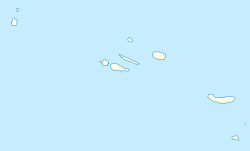
Back قائمة مواقع التراث العالمي في البرتغال Arabic Спіс аб’ектаў Сусветнай спадчыны ЮНЕСКА ў Партугаліі Byelorussian Списък на световното културно и природно наследство на ЮНЕСКО в Португалия Bulgarian Patrimoni de la Humanitat a Portugal Catalan Welterbe in Portugal German Anexo:Patrimonio de la Humanidad en Portugal Spanish UNESCO maailmapärand Portugalis Estonian Zerrenda:Gizateriaren ondarea Portugalen Basque Liste du patrimoine mondial au Portugal French Patrimonio da Humanidade en Portugal Galician
The United Nations Educational, Scientific and Cultural Organization (UNESCO) designates World Heritage Sites of outstanding universal value to cultural or natural heritage which have been nominated by countries that are signatories to the UNESCO World Heritage Convention, established in 1972.[1] Cultural heritage consists of monuments (such as architectural works, monumental sculptures, or inscriptions), groups of buildings, and sites (including archaeological sites). Natural heritage is defined as natural features (consisting of physical and biological formations), geological and physiographical formations (including habitats of threatened species of animals and plants), and natural sites which are important from the point of view of science, conservation or natural beauty.[2] Portugal ratified the convention on 30 September, 1980.[3]
There are 17 World Heritage Sites listed in Portugal, with a further 18 on the tentative list. The first four sites listed in Portugal were the Monastery of the Hieronymites and Tower of Belém in Lisbon, the Monastery of Batalha, the Convent of Christ in Tomar, and the town of Angra do Heroísmo, in 1983. The most recent additions to the list were the Sanctuary of Bom Jesus do Monte in Braga and the Palace of Mafra with its hunting park in 2019.[3] One site, the Laurisilva, is located in the island of Madeira and is Portugal's only natural site; the other sites are cultural. Two sites are located in the Azores archipelago. The Prehistoric Rock Art Sites in the Côa Valley and Siega Verde is shared with Spain, making it Portugal's only transnational site.[3]
- ^ "The World Heritage Convention". UNESCO World Heritage Centre. Archived from the original on 27 August 2016. Retrieved 21 September 2010.
- ^ "Convention Concerning the Protection of the World Cultural and Natural Heritage". UNESCO World Heritage Centre. Archived from the original on 1 February 2021. Retrieved 3 February 2021.
- ^ a b c "Portugal". UNESCO World Heritage Centre. Archived from the original on 21 July 2015. Retrieved 2 October 2021.
© MMXXIII Rich X Search. We shall prevail. All rights reserved. Rich X Search

